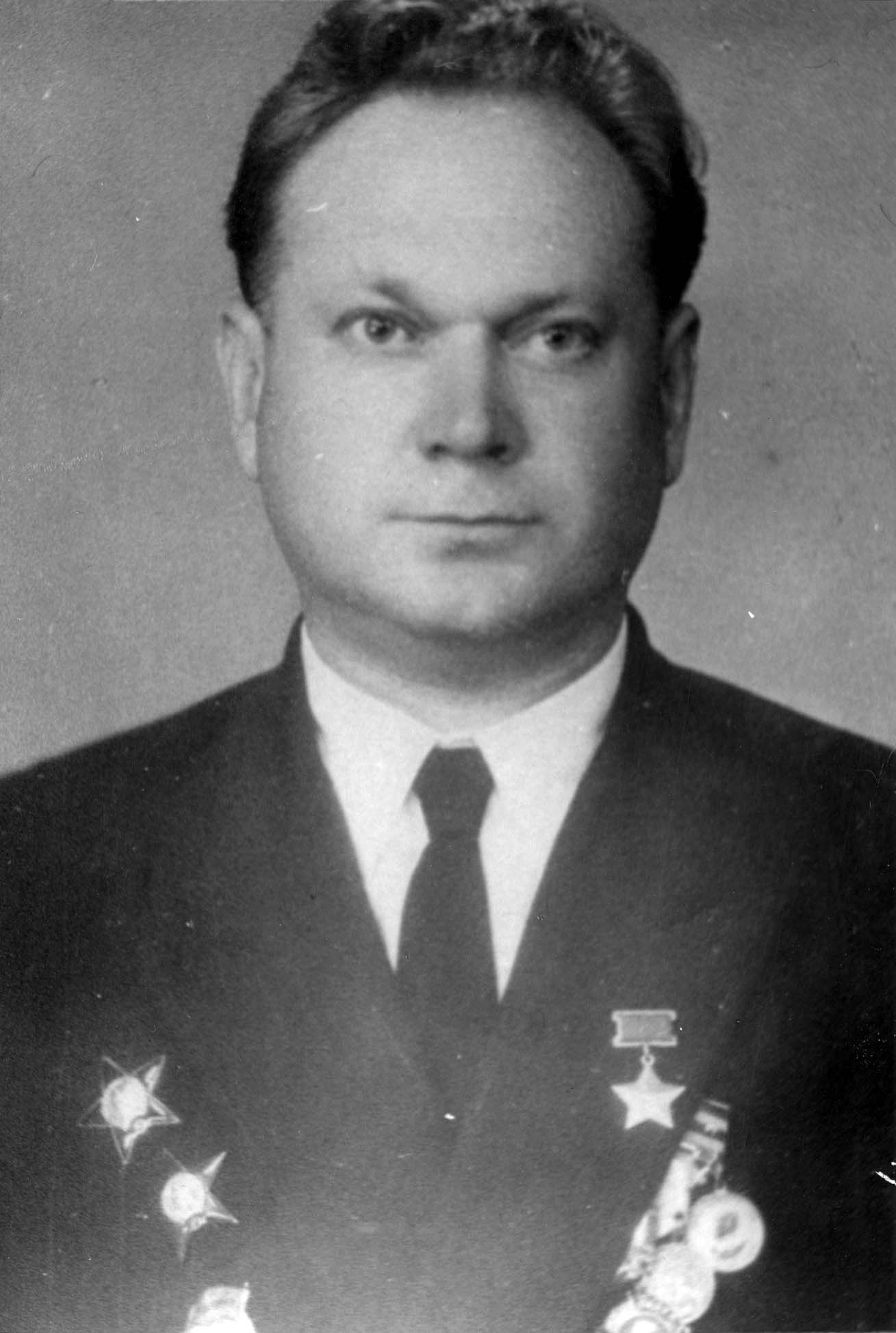Vladimir Khalo was born in 1922 in the village of Lubny, near Poltava, Ukraine. He finished a ten-year school in his native village. When the family moved to Kirovograd Oblast, he found a job at a sugar factory. In 1940, he was called up to serve in the Red Army and sent to the Kharkov Tank School. Following the outbreak of the Soviet-German War in June 1941, Khalo fought in Kiev with a detachment of Tank School cadets. The school was eventually evacuated to Tashkent, where Khalo finished his studies, graduating in the rank of lieutenant. He was then sent to the front, and from June 1942 he fought in Voronezh and Stalingrad, on the Southwestern, 1st Ukrainian, and 1st Belorussian Fronts.
As regimental commander in the 179th Separate Tank Brigade (3rd Tank Army, Southwestern Front), Senior Lieutenant Vladimir Khalo acquitted himself well during the Kharkov offensive operation in February 1943. His unit had been ordered to mount an attack on the German positions. Since the lieutenant was intimately acquainted with the area (having gone to school there), he was chosen to lead the assault, being placed in the tank that led the charge. The unit attacked the Nazis with great speed. The Germans tried to block Khalo’s tank, but its crew broke through and wreaked havoc among the enemy. They destroyed dozens of vehicles and eliminated more than 100 Nazi soldiers.
In another engagement, in March 1943, Khalo’s tank was hit, and he was seriously wounded. For six hours, he lay under his tank, surrounded by enemies. They attempted to approach the vehicle – which, fortunately, had not exploded, – but he repelled them with his automatic weapon. Eventually, Soviet scouts crawled up to the tank and carried Khalo to a safe spot, from which he could be evacuated to a hospital. In May 1943, Vladimir Khalo was awarded the title of "Hero of the Soviet Union" for his bravery and valor. After recovering, Khalo returned to his brigade, and went on to fight with it all the way to Prague.
When the war was over, he settled in Odessa, and subsequently worked as a senior customs inspector in the port of that city. In 1949, he was drafted into the Soviet Army for the second time. In 1956, he graduated from officer training courses, and went on to serve as major of the reserve, until his retirement.
Vladimir Khalo died in Odessa in 1993.







